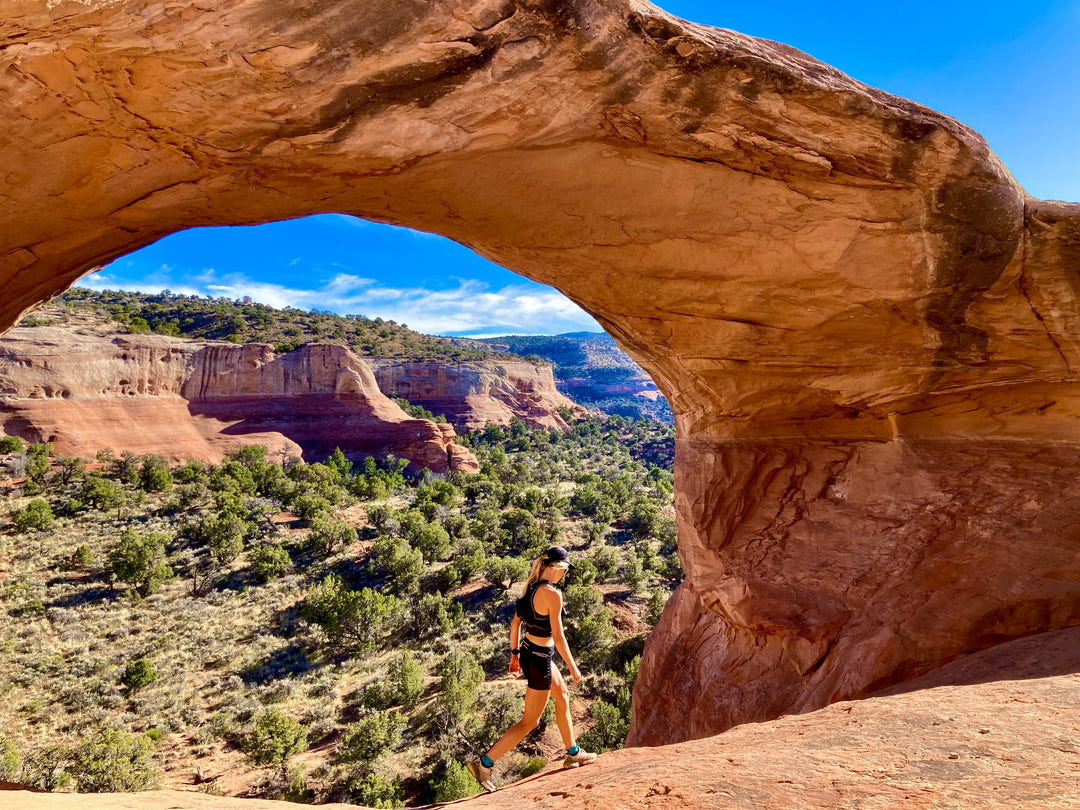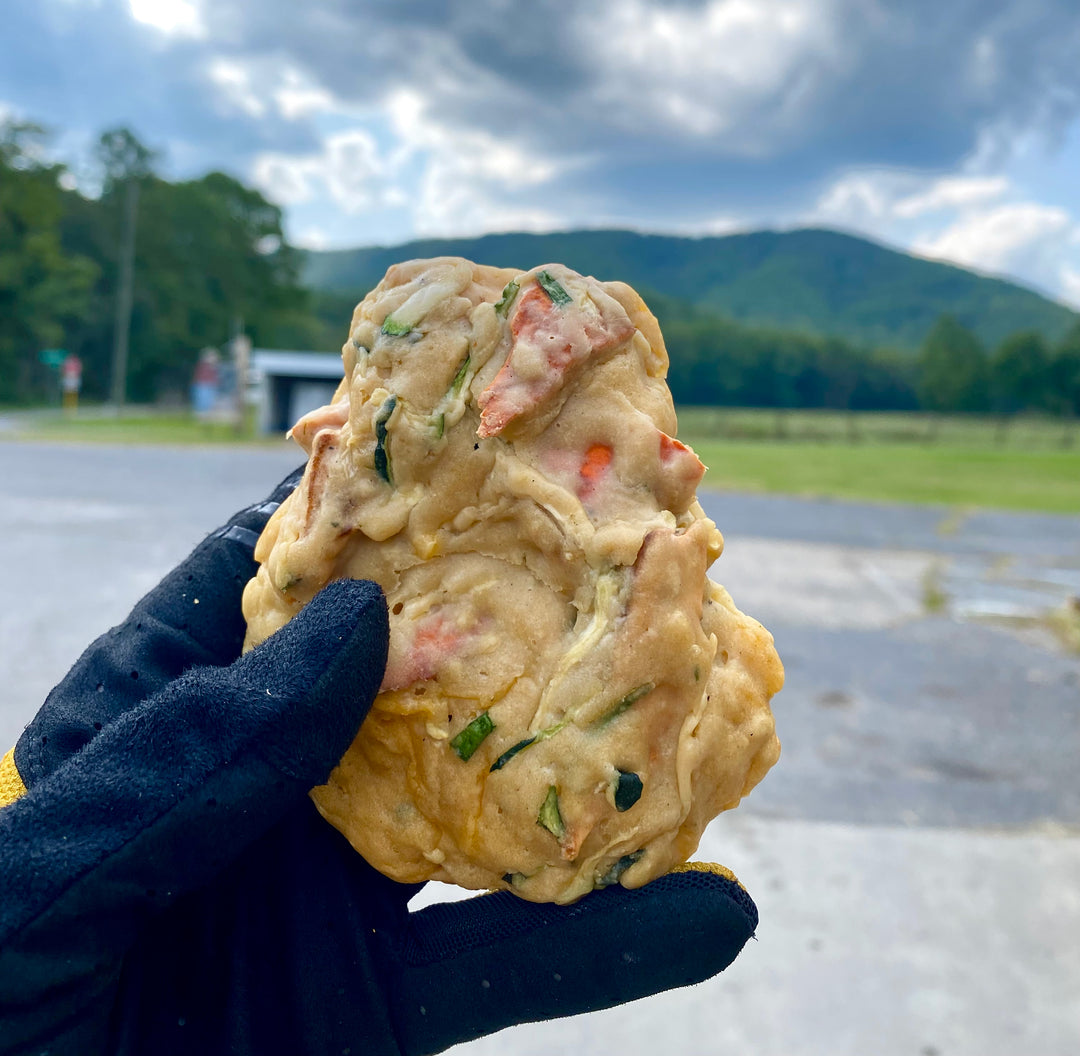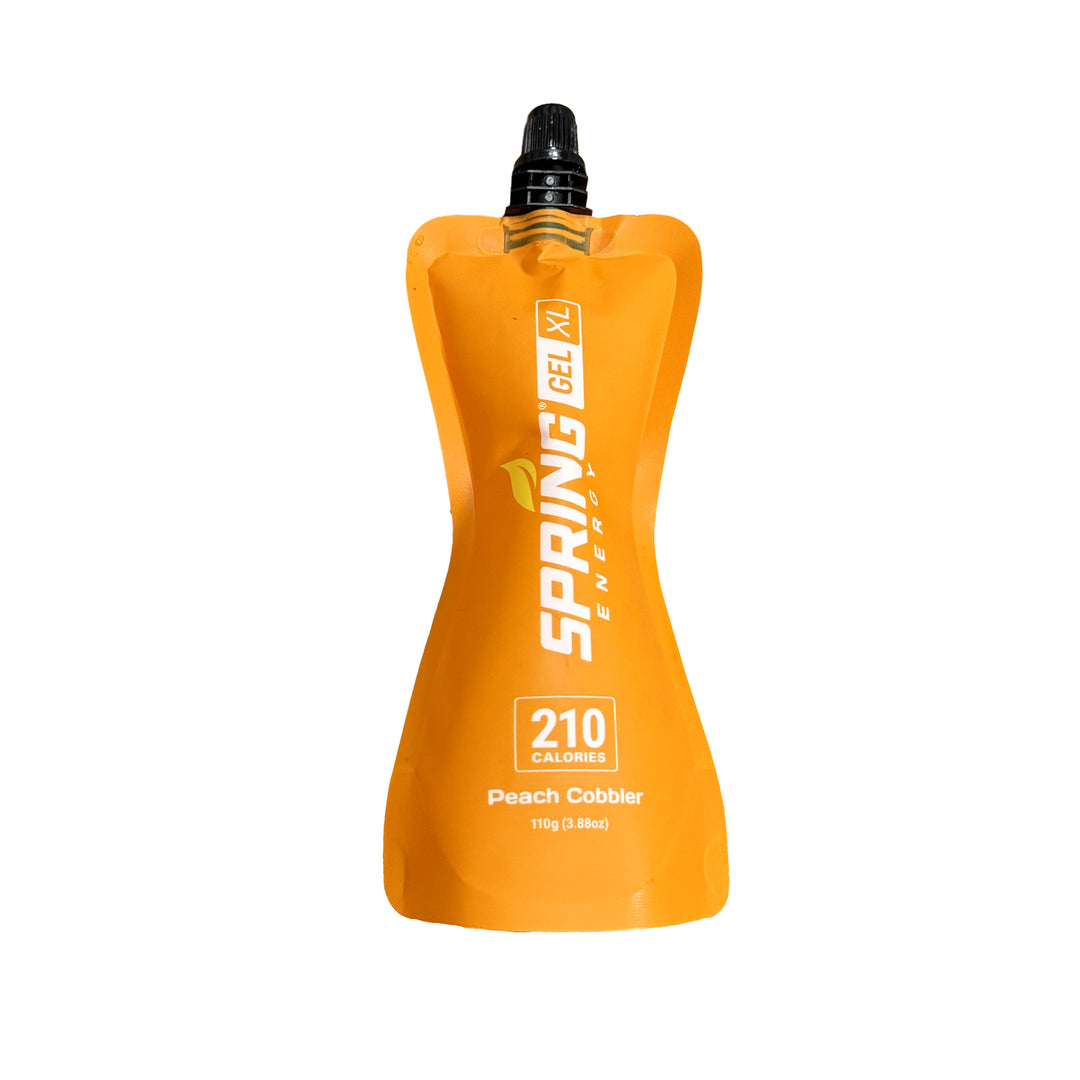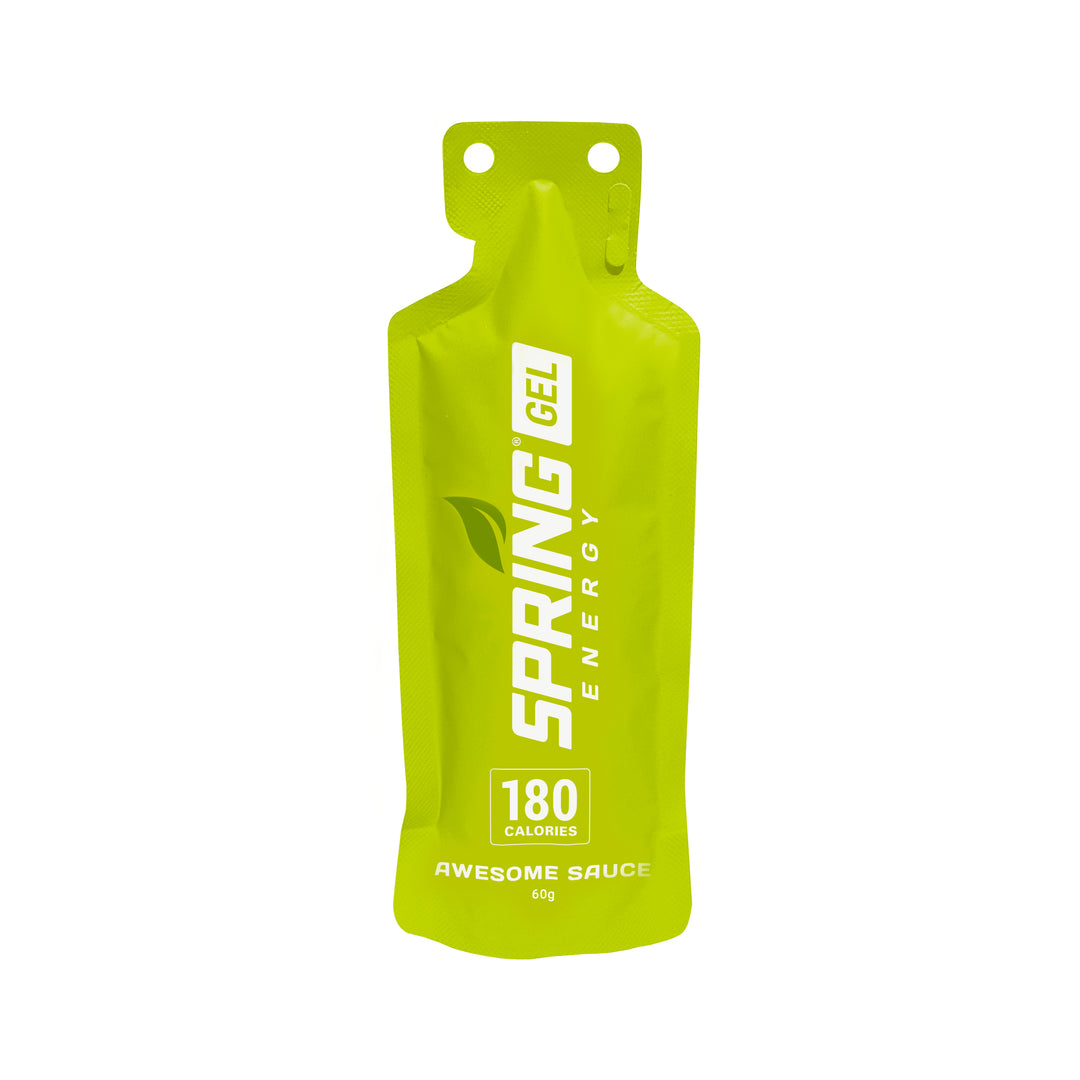On a roll


Spring ambassador, Olaf Wasternack, is quickly approaching the flat and fast Tunnel Hill 100 in Vienna, Illinois. Olaf has enjoyed a great year of running with his highlights listed below. We talk to Olaf about how his training has gone in preparation for Tunnel Hill, his goals for the race and future, and also his success in timed events.
Per Ultrasignup, you have had a great year of running:
- Black Toe Run 12 hour- 3rd place
- Land Between the Lakes 50 Miler- 4th place
- Run4Water 24 hour, 137.9 miles total- 5th place (2017 top 10 overall individual performances in the US for 24 hours)
- Strolling Jim 40 Miler- 6th place and coveted Gold Shirt for sub 5 hour finish
- The Cannonball (last man/woman standing format)- 2nd place
With so many top-tier results, what has been the one highlight of your year so far?
That's a tie between Strolling Jim and Run4Water. I really wanted the Gold Shirt at Strolling Jim, because I missed it by 4 minutes a few years earlier. Run4Water was a highlight for reaching 137.9 miles, while also running with some of the best distance runners in the US and the world, such as Bob Hearn who had an epic performance. It's those races that refresh my motivation, allow me to learn, and show me what is possible.
Are there any races where you were hoping for a better performance?
Oh yes. At Run4Water, I really wanted 145 miles and possibly more to get a better chance to make the US National Team. However, in the end, I realized that if I were to reach 145 miles, I was still not even close to the skill level of Bob Hearn or the great Jon Olsen.
Why Tunnel Hill? Was the fast and relatively flat course what attracted you?
Yes, that's exactly it. As many people know, I am not very skillful on trails, but I can run well as soon as the obstacles are gone. The odds for a good time on that course are pretty good, especially considering that Traci Falbo ran a 14:45 and Mike Bialick an incredible 12:53. The goal is to not only get a solid time under 15 hours but to achieve very little variance in my pace from start to finish.
How has your training gone for Tunnel Hill?
Honestly, it has been very hard but also rewarding. Overall, it has gone very well. I have never worked this hard towards a race. I had to get used to new workouts, routines, and be more disciplined throughout the entire process. After about two weeks, I noticed my fitness improving, which motivated me a lot and I became laser-focused on the goal. At the moment, I am in the last week of intense training and will then start to taper.
What specific workout or block of training did you start to feel truly prepared and confident?
I believe that the long tempo runs and long semi-fast intervals on tired legs will prove to be very valuable. They always start hard and are not very fun, but as soon as the engine is warm and the mind is in place, I get in the zone and just do my thing. Strava
Any injuries or specific challenges during training?
I have been very fortunate with injuries and did not have any. I did have some calf tightness and heel pain for a few weeks but figured out the cause. I slouched in my office chair and overstretched my legs for hours a day. As soon as I stopped and sat properly, it went away almost overnight, and I was 100% again.
What will be your nutrition strategy for Tunnel Hill?
I will wear a small waist-pack and put my Spring gels in that. I'm looking forward to using the new Canaberry. Additionally, it will be Long Haul and Hill Aid. I will eat one every half hour for as long as I can. Later, my friend James Suh will have some grilled cheese sandwiches for me. I had one at the Cannonball, and it was magic. Towards the end of a race, I love to have some Mountain Dew. It's the kick I need to keep moving when it gets harder.
How does your nutrition strategy for a 100 miler differ from a shorter race?
At Strolling Jim (40 miler), I got away with two gels and two Reese's pieces for the entire race. For runs in the low 20 mile range, I don't really need food.
Which Spring product is your favorite and why?
I love the Electroride. It just tastes so good and is much less artificial than other similar electrolyte mixes that I have tried. It also comes in those handy little gel size packages, which are so much easier to handle and use when refilling your bottle.
What is your "everything goes perfectly" goal?
I think I am very capable of running sub 15 hours, likely 14:30. That would be if I am patient and stay focused.
What is your secondary goal?
Sub 16 hours, which is still a good time and a Spartathlon qualifier.
Will you be competing more with yourself, a time goal, or with your competitors?
Totally competing for a time goal. The time goal is important for me because I am using this as a prep race for the Spartathlon in 2018. If I can run my goal time with fairly even splits, then I know I am on the right track to do well at Spartathlon. And of course, there is the competition with yourself too. There is always the point where it gets hard, and you have to really dig deep.
How do you handle the inevitable mental lows during the long ultras?
I listen to music. I have tried it at the last few races and am still learning when to use it for the best effect. My playlist gets me super energized and hyper-focused. I latch on to the beat and don't let go. At races where I don't have access to music, I think about my goals that I want to reach and that helps me get through it. At 24 Hour Nationals in 2015, I was super close to my goal of 140 miles, which was the qualifier for the National Team. I was completely exhausted but pushed my last two miles at 7 minute pace and made the cut with just over 140 miles.
You seem to like the timed events. What draws you specifically to the timed race formats?
I think what draws me to those events is that they are mentally very challenging. Also, they are usually not technical, which suits me. All I have to do is to switch to auto-pilot and let the sufferfest begin. I love to be in the pain cave. The ultimate goal is still making the US 24 Hour Team. Those guys are really good (obviously), and I still need to learn and compete at a higher level for some more time before I can be more of a contender.
What are the major differences in training and competing in a 24 hour race compared to a 100 mile race?
I think some speed training is required to do well at 100s, at least for the races that need less technical skills. For 24 hours, those take much more patience due to the slower pace. So the training contains a lot of slow miles and many hours on your feet. Weekly mileage is similar but achieved with different paces. Also, I think that core strength is very important for 24 hour races.
How do you structure your training? What's your philosophy? Do you follow any specific coaching style/philosophy?
I follow exactly what the coach (Scott Wietecha) says. I never question it. It has served me well so far, and he seems to know exactly what I am capable of, more so than I do. Some units look nuts, and I think that I can't do it. But I work hard anyway and usually manage the workload. So the philosophy is to trust the process and the coach. It is easy to get carried away and train like crazy and get greedy, which usually causes exhaustion or injury. It takes patience and time to train hard for months without straying away from the ultimate goal.
In terms of structure, I always run right after I get up early. The roads are empty, and my head is clear, which allows me to focus on the workout fully. The second run is right after work, and that helps me to wind down after a day at work. Also, planning training around work and family is super important. I tell Scott how the coming week is going to look and then he plans the workouts. That way I can balance my time with other commitments, training, and recovery.
Any major goals for 2018 and beyond?
The big goal for 2018 is the Spartathlon in Greece. I am pretty certain that I can be on the team (the US Team has 25 spots), thanks to my 2017 Run4Water performance. Just finishing Spartathlon would be fantastic, as it is one of the hardest long-distance races out there. However, I will leave everything on the course and make sure to represent the US as best as possible. Beyond, in about 2-3 years I want to run the Atacama Crossing, a multi-day race that is mostly self-supported through the Atacama desert in Chile. In addition, I want to be more involved in volunteering for Achilles Nashville, which is a non-profit that helps athletes with disabilities train and compete in races. I really love volunteering and being a part of that group.
Disregard current fitness, specificity in training, and travel logistics. Pick a race you have done in the past to run again based purely on the joy of the course, race day experience, and challenge.
I think my most joyful race was Yamacraw 50k. The course was just so beautiful that it caused me to stop and admire the beauty for a bit on several occasions. It is located in the Big South Fork area in Kentucky. We camped that weekend and just enjoyed being outside. The race is very well organized, and the after-party includes live music and BBQ, which adds to the whole experience.
Ryne Anderson








Leave a comment